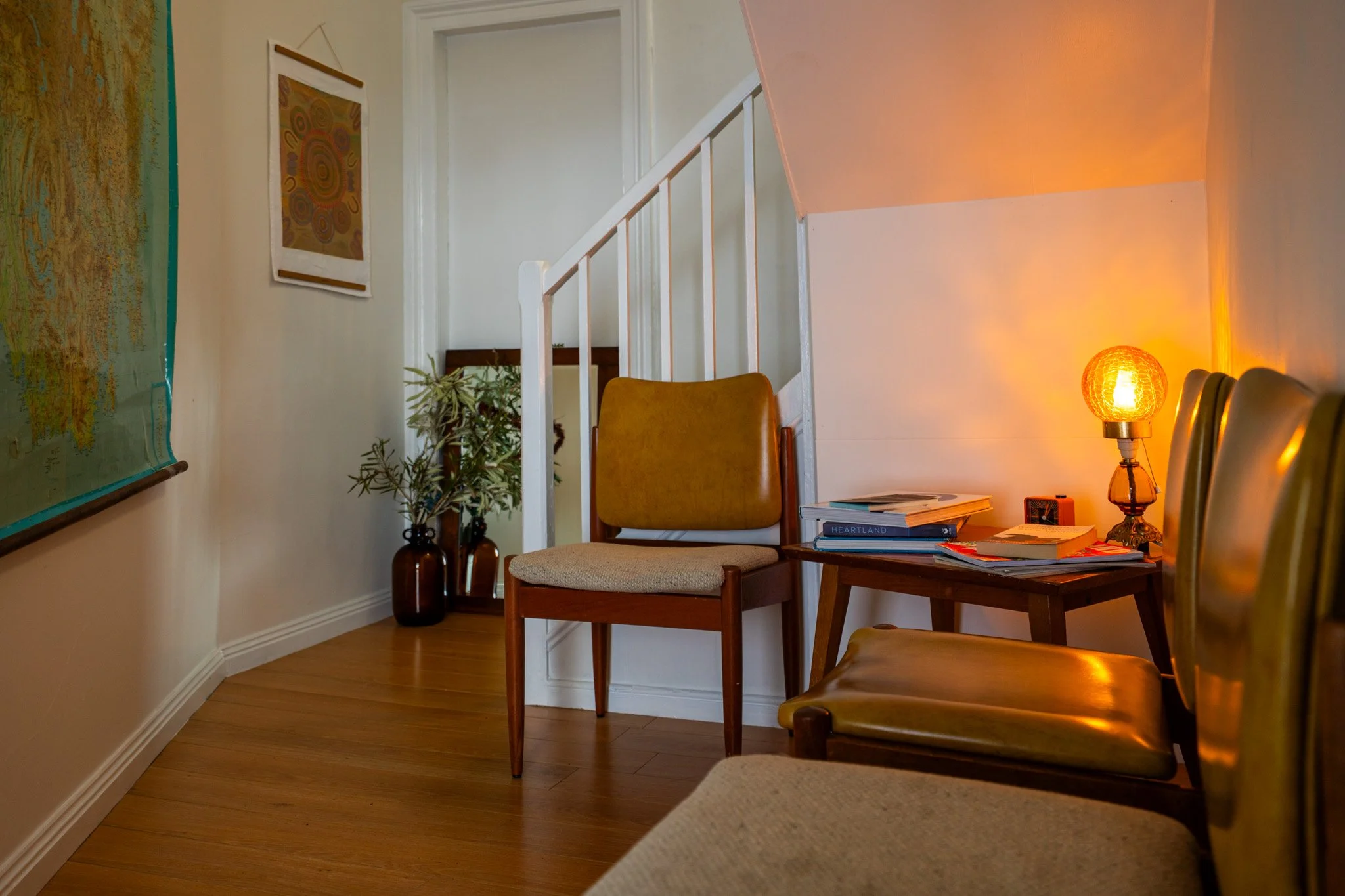
Frequently asked questions.
Do I need a referral?
You can self refer by contacting me through this website or sending me an email. You can ask your GP to refer you to a mental health care plan MHCP (10 sessions per calendar year)
How do rebates work?
With a Mental Health Care Plan (MHCP) from your GP, you can claim Medicare rebates for eligible sessions (10 sessions per calendar year). Many private health funds also provide rebates, but coverage varies; please check directly with your insurer.
What are your fees/costs?
The cost of sessions depends on the type of therapy you’re accessing (for example, individual, couples, or family work) and whether you’re using Medicare, private health insurance, or another funding pathway. Because these details can vary, I don’t list set fees on my website. If you’d like to know more about the fees that apply to your situation, please get in touch and I’ll provide a clear breakdown. I can also guide you around rebate options (such as Mental Health Care Plans or private health coverage) so you know exactly what to expect before we begin.
What types of funding are available?
There are several options that may help cover the cost of sessions:
Medicare rebates – available with a Mental Health Care Plan (MHCP) from your GP for individual therapy with an Accredited Mental Health Social Worker.
Private health funds – many health insurers offer rebates for counselling or social work, though coverage varies. It’s best to check directly with your fund.
NDIS funding – if you’re an NDIS participant, you may be able to use your plan funding for therapeutic supports.
JobAccess Employee Assistance Fund (EAF) – this can provide funding for ADHD therapeutic coaching as workplace support.
If you’re unsure what funding might apply to you, please reach out and I’ll be happy to talk through your options.
Do I have to choose between indoor or outdoor sessions?
You have the option to do therapy outdoors, indoors, or a mix of both. Outdoor therapy (often called walk-and-talk) combines movement, mindfulness, and the calming presence of nature as part of the healing process. Some clients choose to meet exclusively outdoors, while others prefer a blend of indoor and outdoor sessions depending on their needs. Whichever option you choose, the focus remains the same: creating a safe, supportive space that helps you reconnect, regulate, and move toward your goals.
Do you offer online sessions?
Yes. I provide telehealth sessions to clients across Australia.
What can I expect in the first session?
Our first session is an initial psychosocial intake assessment. It’s a structured but gentle conversation where we explore your concerns, background, strengths, and goals. This helps me understand you better and ensures therapy is tailored to your needs.
Do you provide clinical supervision?
Yes. I offer reflective, neuro-affirming supervision for social workers and allied health professionals, with a focus on complex cases, trauma-informed practice, and working with neurodivergent clients.
What if I need urgent support?
I am not a crisis service. If you’re in immediate danger, please call 000.
For urgent mental health support you can contact Lifeline on 13 11 14
Beyond Blue on 1300 22 4636
or Headspace (12–25 years) on 1800 650 890.
